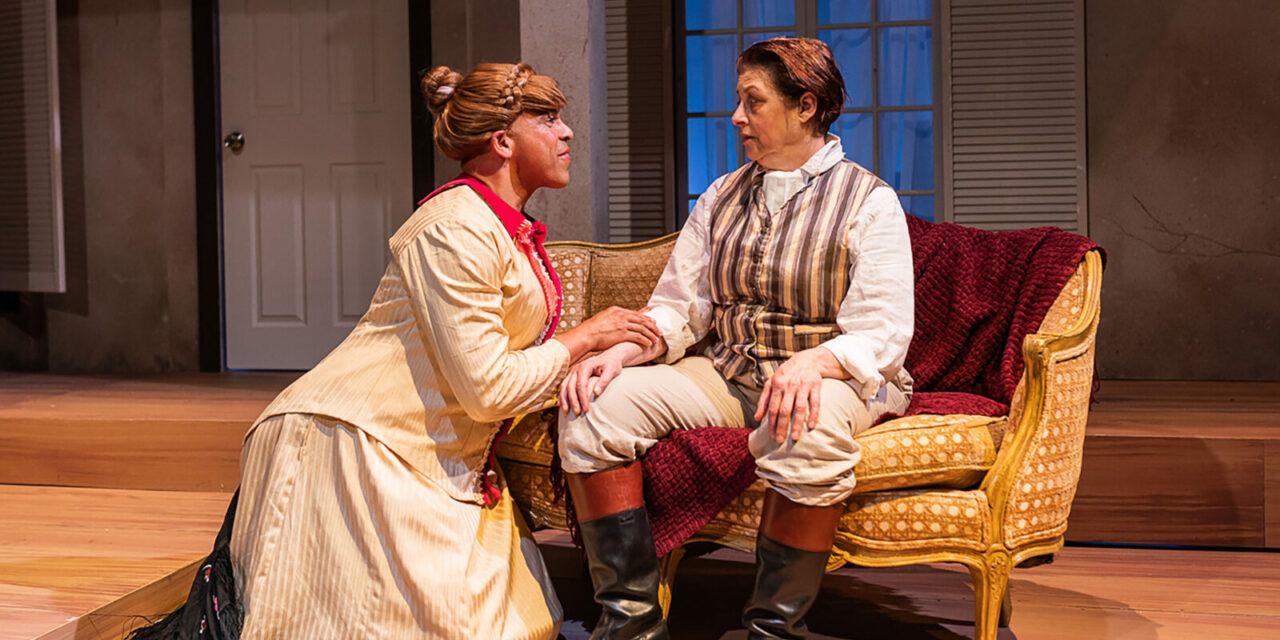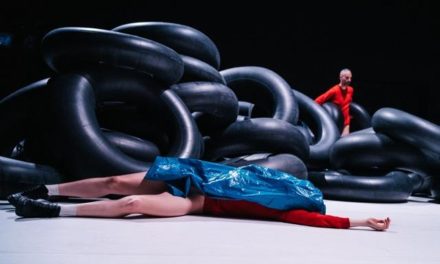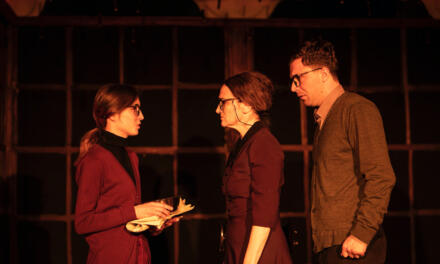When I first read Cloud 9 by Caryl Churchill ten years ago as a theatre undergrad, I was struck not only by its subversiveness in its gender-bending casting practices but in what it had to say about patriarchal structure. We’ve progressed in our social understanding of gender and sexuality in the past decade; we’ve progressed even more so in the last forty years since Churchill wrote her play. As such, it’s interesting to see Cloud 9 today, presented at the Central Square Theater in Boston, MA and it unexpectedly clarifies how much we’ve grown in the last four decades. This production of Cloud 9 is an experiment in producing a 40-year-old ‘modern’ play, but one better suited for lovers of theatre history than those seeking to gain anything new from Churchill’s classic work.
Churchill’s play is neatly separated into two distinct acts. The first act takes place in a parody of 1880’s British Colonial Africa and features the overly patriarchal Clive, his wife Betty—traditionally played by a man—his son Edward—traditionally played by a girl—his daughter Victoria—traditionally played by a doll—and his African servant Josuha—traditionally played by a white actor. This specified casting is meant to highlight gender and racial absurdities of closed-off Victorian England. Betty is played by a man because Betty’s identity is entirely shaped by her husband, and Edward is played by a woman to highlight his femininity. Throughout the act, cracks in the white patriarchal family structure appear as illicit affairs are revealed, locals rebel, and sexual feelings explode.
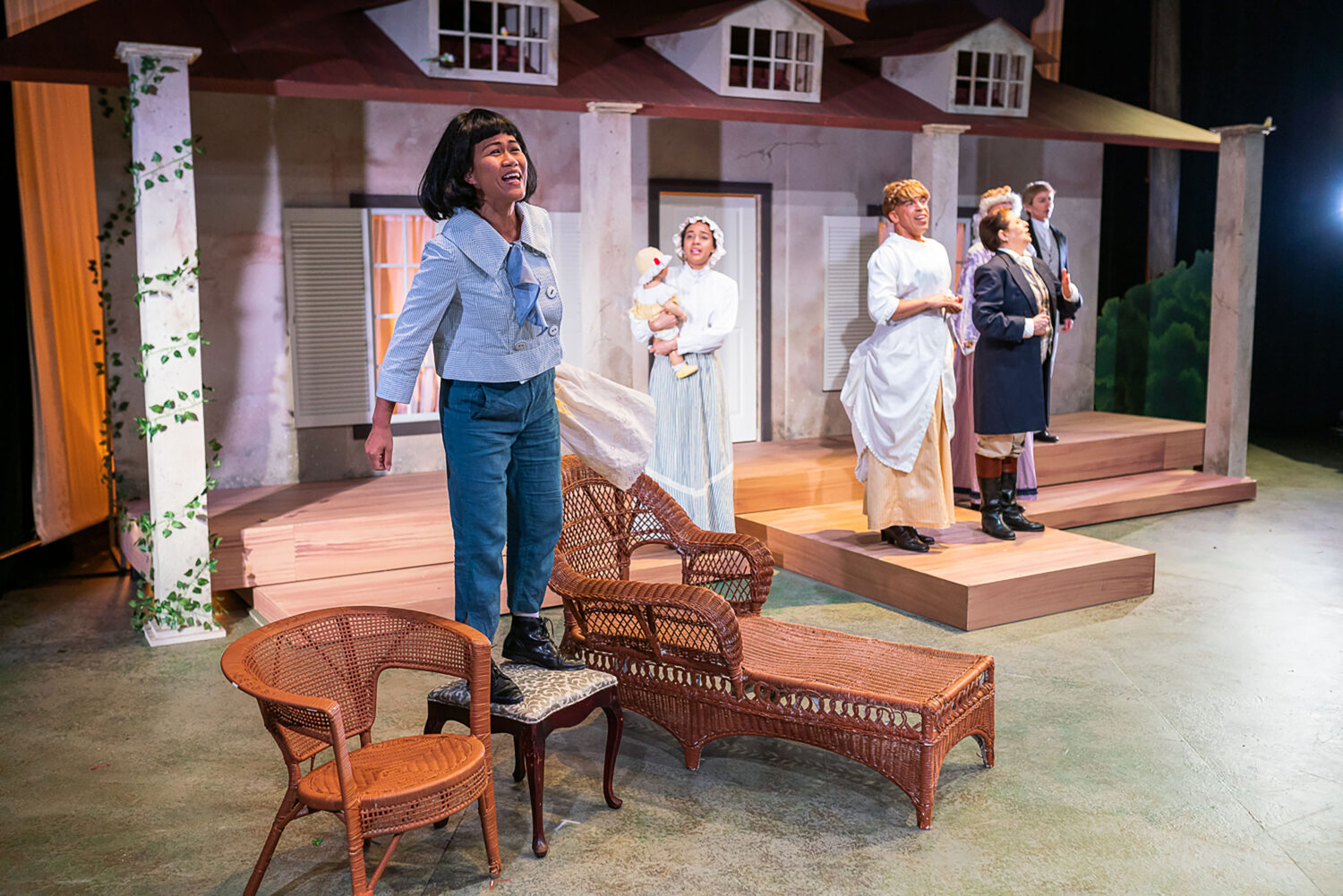
Sophorl Ngin (Edward), Aislinn Brophy (Ellen), Joshua Wolf Coleman (Betty), Stephanie Clayman (Clive), Kody Grassett (Maud), and Marge Dunn (Joshua) in Act 1 of Cloud 9. Photo: Nile Scott Studios.
The second act takes place in 1979 London, but also, thanks to the magic of theatre, only twenty-five years later. We leap between centuries to emphasize what changed – as well as what stayed the same. While the first act is designed to show the oppressiveness of the 1880s, the second act reveals that 1979 ‘modern day’ society is still oppressive, albeit in less obvious ways. Victoria’s husband has a fantastically long monologue in which he claims he understands feminism better than Victoria herself—all the while not allowing Victoria, now grown up and played by an adult, to speak.
The actors change roles across the two acts, and while Churchill offers doubling suggestions, different variations allow for unique connections across the time periods. In this particular production, the most interesting casting choice was Stephanie Clayman’s first act Clive and second act Betty allowing for a direct comparison between oppressive husband and oppressed wife. (In the second act, Betty is separated from Clive and Clive does not appear).
However, the play remains distinctly dated and what was once considered progressive, now is either commonplace or in some cases, regressive. Joshua Wolf Coleman’s first act Betty, instead of being a gender confused wife, is instead a man in quality drag, and drag of course no longer has the same impact as it once did. Similarly, Sophorl Ngin’s Edward comes off as tom-boyish, instead of as a feminine boy who likes to play with dolls. In these cases, costumes alone are no longer enough to highlight the inner lives of their respective characters.
Conversely, Stephanie Clayman effectively leans into a hyper-masculine Clive, obstinate in his position. Kody Grassett successfully emphasizes his own masculinity as the grandmother, Maud, with his obvious beard stubble, strength, and hairy calves.
This inconsistency of character choices is also present in the acting. There are some lovely moments in which the conceit of Victoria’s doll-state is exposed as she’s literarily tossed around. There are also scenic opportunities lost due to the show’s quick pacing that barrels over what may be ‘aha!’ moments.
Churchill wrote the second act as a modern counterpoint to the first act, but this current day second act is now forty years old. While this act still successfully contrasts with the first, many of its ideas are dated, especially in its views on homosexuality. Betty’s mere tolerance of homosexuality is considered progressive. The two gay male characters are presented as stereotypically wimpy and promiscuous. Sexual identity is too conflated with gender identity, and both are quite inappropriately connected to pedophilia. The second act, originally modern, now feels old with its 1970’s period dress. The actors’ British accents only create further distance.
Kody Grassett continues to be interesting as the cruising Gerry; his monologue on picking up a man on a train was a slow highlight in the otherwise fast-paced show. Both Aislinn Brophy and Sophorl Ngin are able to show off their acting range in their portrayal of characters both younger and older than their first act counterparts.
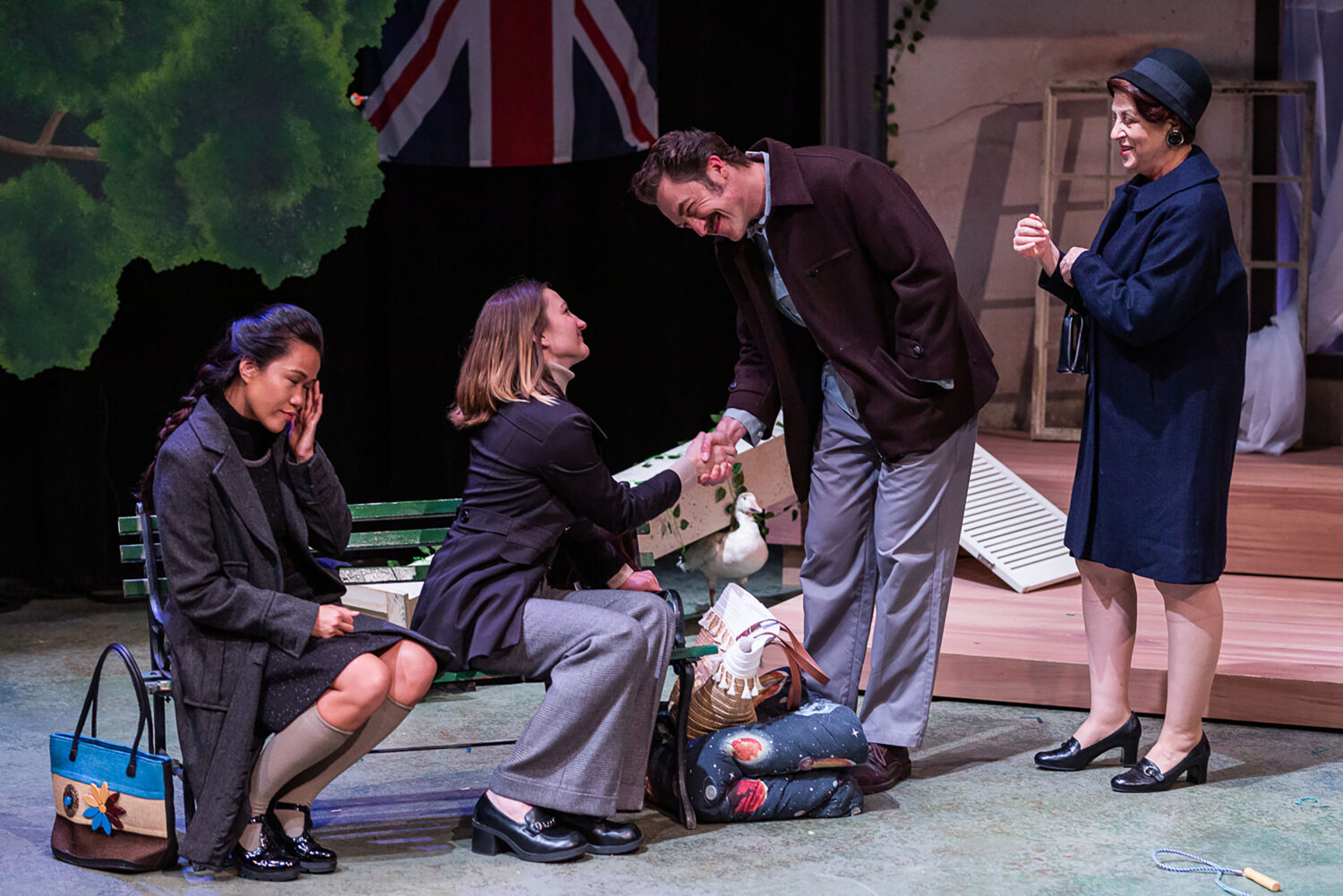
Sophorl Ngin (Vicki), Marge Dunn (Lin), Alexander Platt (Edward), and Stephanie Clayman (Betty 2) in Act 2 of Cloud 9. Photo: Nile Scott Studios.
Cloud 9 is a dramatically complicated play with various tones, storylines, characters, and casting iterations. Central Square Theater’s Cloud 9, is able to successfully navigate the myriad plot points but it is missing a clear thematic throughline or raison d’etre. Theatre buffs will find benefit and intrigue from seeing this production, but otherwise, this iteration isn’t able to offer much new to a 2019 audience.
This post was written by the author in their personal capacity.The opinions expressed in this article are the author’s own and do not reflect the view of The Theatre Times, their staff or collaborators.
This post was written by Rem Myers.
The views expressed here belong to the author and do not necessarily reflect our views and opinions.

